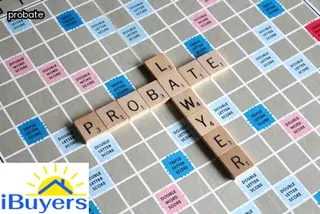In Alabama, an executor is appointed by a court to oversee the probate process when someone dies with a will. This includes collecting and evaluating assets, paying off debts and taxes, notifying creditors and beneficiaries of the deceased’s estate, filing the necessary paperwork, and distributing any remaining assets according to the will.
The executor must also be responsible for selling a house that is in probate as part of their duties. This can be done through listing with a real estate agent or through an auction.
It is important for the executor to understand their responsibilities during this process as well as how long it may take before they are able to distribute any leftover assets.

When selling a house during probate in Alabama, it is important to understand the factors that can affect the probate timeframe. Generally speaking, the amount of time it takes to complete a probate sale depends on several key elements.
The complexity of the estate is an important factor and will affect how long it takes for all heirs to agree on the sale. If there are multiple beneficiaries or if certain assets require appraisals or other evaluations, this can cause delays and add more time to the process.
Additionally, the size of the estate and courts backlogs in processing paperwork can also impact how long it takes for a sale to be completed. Finally, any disputes between family members regarding who should be involved in the sale or decisions made by court-appointed administrators can increase delays as well.
It is important to consider these factors when figuring out how long it will take to sell a home while in probate in Alabama.
In Alabama, the process of probate sales is complicated and can be difficult to understand. Intestate succession, which is when a person dies without a will, is one factor that determines how probate sales are handled in the state.
Probate courts must then distribute assets according to the state’s laws of intestacy in order to settle an estate. This means that any property belonging to the deceased must be identified, valued, and divided among their heirs or creditors.
The probate court also has jurisdiction over all aspects of estate administration including the collection and distribution of assets from the estate. If someone wants to sell a house while it is in probate, they must ensure that all requirements for transfer of ownership are met before any sale can take place.
It is important for sellers to consult with an attorney or other legal expert so they can understand what steps need to be taken in order for them to successfully complete a sale during probate proceedings.

In order to open a probate case in Alabama, you must first obtain an application from the local probate court. You will need to fill out and submit the application along with the death certificate of the deceased person whose assets are to be distributed.
Once all paperwork is complete, you must file a petition for probate with the court. The petitioner will then have to pay statutory fees and serve notice of the proceedings to all interested parties.
After all necessary documents have been served, the court will then set a hearing date where they will decide whether or not to approve or deny the petition for probate. If approved, an executor or personal representative is appointed by the court to oversee and manage all assets that are part of the estate.
This includes selling property if necessary. Understanding how to open a probate case in Alabama is essential if you plan on selling a house while in probate as it provides clarity on who can make decisions regarding matters related to deceased's estate.
In order to initiate probate proceedings in Alabama, a valid will must be filed with the appropriate Probate Court. Before filing the will, certain requirements must be met.
The will must be properly executed and include signatures from two witnesses, who must also sign an affidavit of due execution. The original will should also be accompanied by a death certificate or other proof of death for the testator.
Additionally, any codicils or amendments to the will must also be filed within six months after the date of death. Furthermore, anyone wishing to administer an estate in Alabama must have legal capacity and good moral character as determined by the court.
Understanding these requirements is essential for anyone wanting to file a will for probate in Alabama.

An Affidavit of Heirship in the state of Alabama is a legal document that is used to prove the ownership of property held by an individual who has passed away. It outlines who will receive the decedent's assets, such as real estate.
The Affidavit must be signed by two witnesses and notarized in order to be valid. In some cases, additional documents may be required to verify an individual's identity or to resolve any complications related to the ownership claim.
An Affidavit of Heirship can provide important protection for those involved in selling a home in probate, since it confirms who holds the legal rights to the property and how it should be divided between heirs. This document can save time and money by reducing or eliminating the need for lengthy court proceedings when settling disputes over ownership.
In Alabama, an estate can be settled without probate if it meets certain criteria. Generally, if the value of all assets in the estate is less than $25,000 and there are no real estate holdings, probate may not be necessary.
In addition, if all beneficiaries of the estate agree to a non-probate settlement, then this is another way that the estate could potentially be settled without going through probate court. Furthermore, if a will has been established prior to death and all creditors have been paid out accordingly and the remaining assets are distributed according to the will’s terms, then probate court may not be required.
If there are debts or other matters still outstanding after death or unsure who should receive what from an estate with no will or trust involved, then it is likely that probate will be required in order for matters to be handled properly.

In Alabama, it is possible to waive the requirement for a bond during probate proceedings. This waiver can be beneficial for those who are selling a house while in probate as it can help speed up the process and potentially save them money.
While this waiver is not always available for all types of probate cases, it may be a viable option depending on individual circumstances. It is important to consult with an attorney or other legal professional familiar with probate law in order to determine if this option is available and how to properly submit an application.
The waiver of bond requirements can provide significant relief to those involved in a probate sale, making the entire process smoother and faster than it would otherwise be.
Inheritance tax laws in Alabama are often complex and difficult to understand. While the state is not one of the few that has an inheritance or estate tax, it does have certain rules and regulations that must be followed when selling a house while in probate.
The exact nature of these laws will depend on whether the homeowner was married or single, as well as on their relationship to their heirs. In general, any taxes due upon death must be paid before the sale can go through.
Furthermore, if a deceased individual had debts, they must be taken care of first before any assets can be distributed to beneficiaries. It is important to note that all heirs must agree on any proposed sale and that proper paperwork needs to be filed with the courthouse for authorization.
Finally, some counties may require special orders from the court prior to transferring ownership of a home after probate proceedings are complete. Understanding all of these requirements can help ensure that a successful sale takes place during probate proceedings in Alabama.

The court-appointed administrator plays a critical role in probate proceedings in Alabama. The primary responsibility of the administrator is to ensure that all assets of the deceased are accounted for and managed in accordance with applicable law.
This includes collecting and valuing any property, obtaining appraisals, searching for creditors, preparing tax returns, and handling any debt owed by the deceased. Additionally, the court-appointed administrator must maintain accurate records of all transactions related to the estate and provide copies of these documents to the court upon request.
In some cases, they may also be required to negotiate settlements with creditors or handle other legal matters associated with the estate. It is important to note that while serving in this capacity, the court-appointed administrator owes a fiduciary duty to both the estate and its beneficiaries; thus, it is essential that they act in an honest and responsible manner when carrying out their duties.
In Alabama, creditors are granted certain rights during the probate process. It's important to understand the timeline and order of payments involved when a deceased person's estate is winding its way through probate court in Alabama.
Creditors may submit claims for payment from the estate for any debts owed by the decedent at the time of death. These claims must be submitted within four months after the initial notice of administration is published in local newspapers or they will be considered invalid.
After all valid creditor claims have been satisfied, then any remaining assets can be distributed to the heirs according to state law. The probate court has authority over all aspects of the probate process and ensures creditors' rights are protected throughout the proceedings.
In addition, it is important to note that Alabama law provides that if a decedent's estate is insolvent, meaning there are not enough assets to satisfy all creditor claims, then those creditors can receive a pro rata distribution from whatever assets remain in the estate. Probate sales involving real estate are also subject to certain requirements under Alabama law and it is essential to understand these laws before attempting to sell a house while in probate.

Once the Final Accounting has been approved by the court in Alabama, the executor of the estate can begin distributing assets to beneficiaries. This process is known as probate distribution, and it involves transferring property owned by the deceased to his or her heirs.
The executor must provide a detailed accounting of all assets and liabilities before distributing them. Typically, this includes an inventory of all real and personal property, as well as liquidation or division of any bank accounts, stocks or bonds held in the deceased’s name.
If there are any debts still owed by the estate, they will be paid out first before any remaining funds are distributed to heirs. It is important to note that certain taxes may need to be paid prior to distribution, so it is imperative that executors understand their obligations when handling probate distribution in Alabama.
Transfer on Death Deeds (TODD) and Joint Tenancy Ownership with Right of Survivorship (JTWROS) are two options available to avoid probate in Alabama. A TODD allows property owners to transfer their real estate without going through the probate process after death.
It is an efficient way to transfer a house while in probate, as it requires only a simple document filing instead of involving the courts. JTWROS, on the other hand, is when two or more people own property at the same time and, upon one person's death, the surviving owner automatically gains full rights to the entire property - no probate is necessary.
Both options are easy ways to avoid legal fees associated with probate court proceedings and provide peace of mind that your loved ones will not experience unnecessary delays regarding settlement of your estate.

In Alabama, reopening a closed estate of a deceased person can be done if assets or debts are discovered later on. This process is referred to as the ‘reopening’ of an estate.
Before proceeding with the probate sale of a house, any assets or debts that were left behind must be handled accordingly. The executor of the estate has the responsibility to locate and distribute any assets to debtors and creditors.
If there are unpaid debts, they will become part of the inheritance due to the decedent's estate. In order for the probate sale to move forward, it is important that all taxes and liabilities are paid off prior to distribution of assets.
It is also advised that you contact an experienced lawyer when dealing with this type of situation in order to understand all legal requirements and implications associated with reopening a closed estate.
The process of understanding probate sales in Alabama can be complex, but it is possible to sell a house while in probate by taking advantage of small estate procedures. Small estate procedures can help avoid the lengthy and expensive formal probate process.
Generally, Alabama requires that all estates valued at $50,000 or less are eligible for small estate procedures. This includes real property such as land and homes.
To take advantage of this option, an affidavit must be filed with the county court clerk's office and signed by all beneficiaries within 48 hours of the death. A copy must also be delivered to the executor or administrator within 10 days of filing.
Additionally, a Notice of Small Estate Affidavit must be published in the local newspaper for two consecutive weeks. After all requirements have been met, the personal representative may proceed with selling the property without obtaining court approval.
However, before signing any contracts it is important to consult an attorney who specializes in probate law as there may be additional steps required for transferring title depending on whether or not the decedent left a will or trust.

In Alabama, probate sales can be complicated and time consuming. It is important to understand the legal process before attempting to sell a house while in probate.
There are three common options when selling real estate property during probate in Alabama: an administrating sale, a court-approved sale, or a private sale. An administrating sale is one that is approved by the administrator of the estate and is handled directly through the court system.
A court-approved sale involves selling the property through either a public auction or an open bid process that has been reviewed and approved by a judge. Finally, a private sale is one made outside of the court system, typically with buyers who are already known to the deceased's family or heirs.
Each of these options have their own advantages and disadvantages which should be considered carefully before making any decision about selling real estate property during probate in Alabama.
Summary administration is a simplified process for settling the estate of a decedent. This option is available in Alabama when certain requirements are met.
The estate must be worth less than $25,000 and must not include any real property; if these conditions are met, then summary administration can be used to settle the estate without court supervision or intervention. Before or during the probate process, wills may be disputed by objecting parties who believe it does not reflect the intentions of the deceased.
In some cases, such as when a person dies without leaving a will, declaring domicile can help avoid the cost and delay of formal probate proceedings. Self-help resources may also be used to probate estates without an attorney, potentially saving significant costs in time and money.
In Alabama, whether a house has to go through probate depends on the circumstances surrounding the deceased homeowner's estate. If the homeowner passed away with a will in place and named an executor to oversee the estate, then it must pass through probate.
If there was no will or the property was not held in a trust, then it may have to go through probate as well. In most cases, if all of the heirs agree on how to divide and distribute the assets, they can avoid probate.
If a house is going through probate in Alabama, it is important for all involved parties to understand their rights and responsibilities so that the sale of the property goes smoothly. It is also important for potential buyers of houses in probate to be aware of any additional costs associated with such transactions.

Probate is the legal process in Alabama where a deceased person's assets are identified and distributed to their heirs. In order to do this, the executor of the estate must go through court proceedings to prove that they have the right to manage the estate.
This can be done either through a will or through an affidavit of heirship if no will exists. During probate, any creditors of the deceased must be paid out and all remaining assets must be divided among the heirs according to state law.
The probate court may also require certain other duties to be completed before distribution is complete. Understanding probate sales in Alabama is important for those wishing to sell a house while in probate as it allows them to make sure their rights as an heir are protected throughout the process.
In Alabama, a probate estate can remain in probate for an extended period of time, depending upon the complexity of the estate and the amount of time it takes to settle any outstanding debts or taxes. Generally speaking, most estates remain in probate for between 6 months and 2 years, though some may take longer.
During this time, the court-appointed executor must manage all aspects of the estate as well as sell any real property held by the estate. It is important to note that there may be restrictions on who can purchase a house while it is still in probate; typically only those with an interest in the estate are allowed to purchase such property.
Understanding these rules and regulations surrounding selling a house while in probate in Alabama can help ensure that buyers and sellers alike are informed and protected during this process.
In Alabama, any property owned solely by a deceased individual must go through the probate process.
The probate court will oversee the distribution of assets to heirs and creditors.
Any real estate owned by the deceased, such as a house or land, must be included in the probate process and will require court approval for its sale.
Before a house can be sold while in probate, it is important to understand what requires probate in Alabama and how the process works.
Yes, a house can be sold during probate in Alabama. Probate sales are the means by which a deceased person's property is sold to pay debts and taxes.
Alabama probate laws provide that assets must be distributed to the heirs after any creditors have been paid. The executor of the estate has the responsibility to identify and appraise all assets, and then sell them as needed to cover debts.
Selling a house while in probate requires several steps. First, an inventory of the estate's assets must be made and submitted to the court for approval along with an appraisal of each item.
Next, the executor must advertise the sale of the house in accordance with state law before listing it on the market. After finding a qualified buyer, an offer must be accepted and an agreement for sale signed between parties.
Finally, closing papers must be filed with the appropriate county court for approval before ownership is transferred to the new owner. With thorough understanding of Alabama probate laws, selling a house during probate can be done quickly and efficiently so that heirs receive their inheritance as soon as possible.
If you want to avoid probate on your house in Alabama, it is important to understand the process and implications of probate sales. One way to avoid probate is by creating a living trust.
This type of trust allows for the house to be transferred from its owner’s estate to the trust itself, making it unnecessary for the house to go through probate. This type of trust also allows for the testator’s wishes to be followed without having their estate tied up in lengthy legal proceedings.
Another option is a transfer on death deed (TODD). A TODD allows for a homeowner in Alabama to designate a recipient who will receive ownership of their home upon their passing, again avoiding probate.
Finally, joint tenancy with right of survivorship (JTWROS) is another way individuals can avoid going through probate when selling their house in Alabama. With JTWROS, two or more parties own the property with both parties having an equal share and right of survivorship; when one party dies, the surviving party automatically owns 100% of the property without having to go through any legal proceedings or probate court hearings.
Understanding these options can help you make an informed decision on how best to avoid probate when selling your house in Alabama.
A: Testamentary probate listings in Alabama refer to the process of transferring legal ownership of a deceased person's property to his or her heirs. This includes all tangible assets such as real estate, vehicles, cash, stocks and bonds, as well as intangible assets such as bank accounts. Guardians may be appointed by the court to manage the estate on behalf of any minors or incapacitated individuals.
A: A testamentary probate listing in Alabama involves the transfer of ownership of any assets owned by a deceased individual to their lawful heirs or beneficiaries. This includes all real and personal property, bank accounts, investments, stocks, bonds, other financial instruments, as well as any debts or obligations owed to or by the decedent. In cases where minors are involved in the estate transfer process, a Guardian Ad Litem may be appointed to look after their interests and a Guardianship may be established to manage the minor’s assets until they reach adulthood.

A: A testamentary probate listing in Alabama involves the creation of a legal document that outlines the distribution of any assets owned by a deceased person, such as property, cash, or investments. The listing also includes any appointed guardians for any minor children of the deceased parent.
A: A testamentary probate listing in Alabama is a legal process supervised by the court in which property, cash, and guardians are distributed according to the terms set forth in a will. The purpose of a testamentary probate listing is to ensure that the decedent's wishes are carried out as intended.
A: A testamentary probate listing in Alabama involves selling the properties, cash, and guardians of a deceased individual. To sell the property through a testamentary probate listing, an executor or administrator will need to open a probate case with the court, collect information on the assets of the estate, list all assets for sale, and manage the sale process.

A: A testamentary listing in Alabama involves the determination of a decedent's assets, including any real property, cash, and guardianship of any minor children.
A: A testamentary probate listing in Alabama involves the appraisal of real estate by a licensed Realtor, who provides information to the court regarding the valuation of the property. This appraisal is then used to determine how much the estate will receive from selling the property, as well as to ensure that guardians are appointed to oversee distribution of cash and other assets.
A: A testamentary probate listing in Alabama is a legal document that gives a person or group (the beneficiary) the authority to manage and distribute the assets of an estate. The beneficiary is usually specified in the will of the deceased and may be their spouse, children, grandchildren, or other beneficiaries. Expenses associated with administering the estate are taken out of the assets before they are distributed. Grandchildren are also eligible to receive a portion of these assets according to what is outlined in the will.

A: A testamentary probate listing in Alabama involves the distribution of assets upon the death of an individual. This includes any cash, property, life insurance policies, health assurance plans or leases held by the deceased. The beneficiaries of these assets have to be determined through a court-approved list that shows who should receive which asset.
A: A testamentary probate listing in Alabama is a process whereby an individual's estate, including any properties, cash, and guardianships, is distributed according to their will as determined by the court. Tenancy by the Entirety is a form of joint ownership between married couples that grants them equal rights to use and possess the property. Under Alabama law, this form of ownership can continue after one spouse passes away, transferring the entirety of their interest in the property to their surviving spouse.
A: A testamentary probate listing in Alabama is a list of assets, including cash, real estate, stocks, and bonds that are being auctioned off to the Probate Court. The will names the beneficiary of the estate's assets and expenses along with any grandchildren who may be entitled to a share. It also includes any health, life insurance policies, assurance and leases.